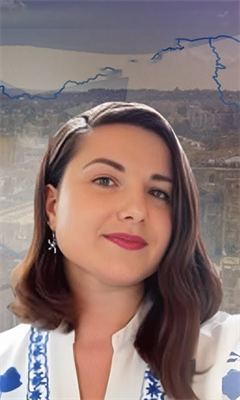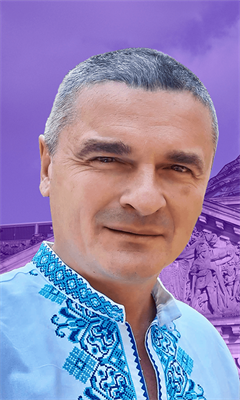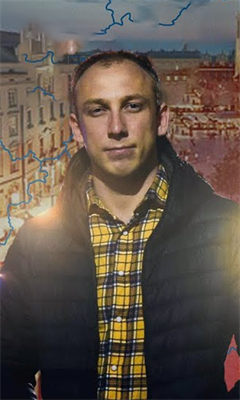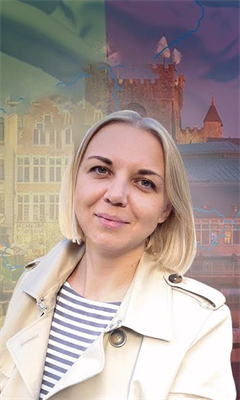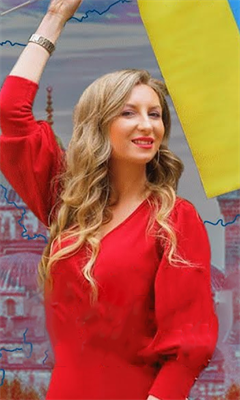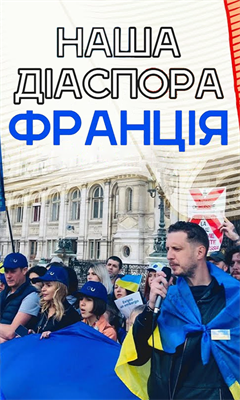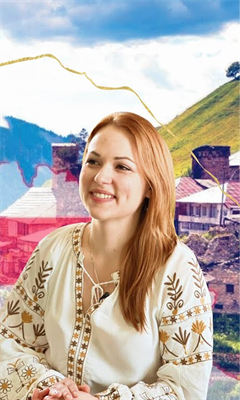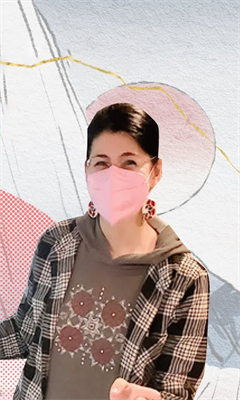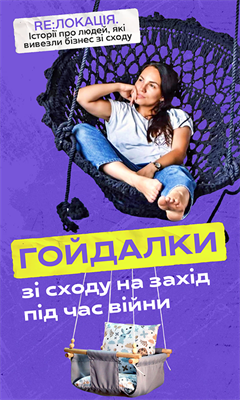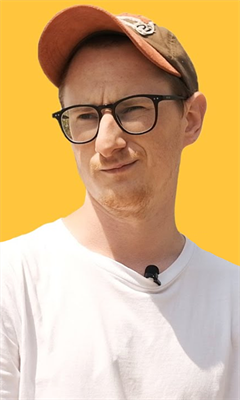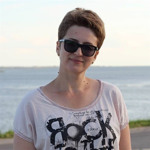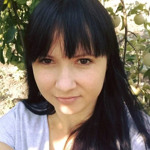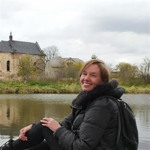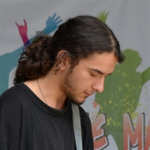Had to search for a machine-gunned bus with bodies of female students inside. The scene was horrific
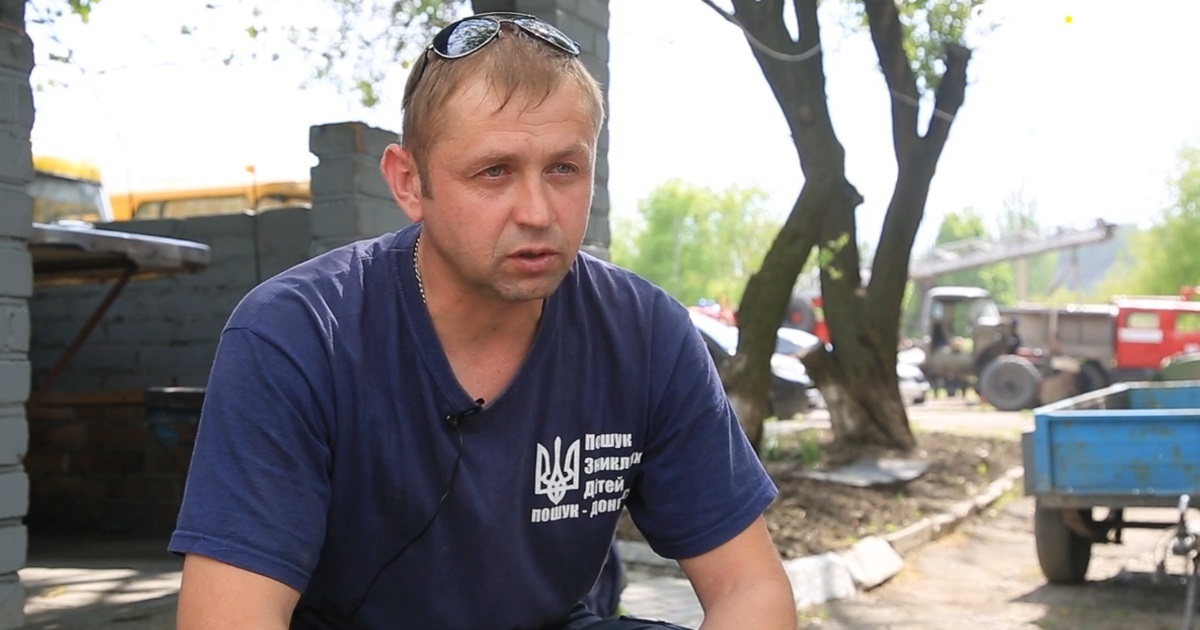
The machine-gunned bus stood there for four days, with the bodies of killed female students still inside, in sitting positions
I’m 42, and I’ve worked as an emergency response worker for half of my life. Helping people is what I love about my job. On the day the full-scale invasion started, I was in the hospital in Sviatohirsk for routine treatment. At 5 a.m., I got a phone call from my friend, who informed me about the invasion. Still having 15 more days of treatment ahead, I nevertheless immediately packed my belongings and left the hospital, and reported for duty later that day. There, in addition to our usual service, we were given some additional wartime work.
My first searching operation in Kharkiv Oblast (region) began literally several days after that. A regular minibus had departed from the city of Kharkiv, heading here, to Donetsk Oblast, yet seemed to disappear along the way. I was first contacted by a mother of one of the missing young women, through a long chain of acquaintances; and then by another mom, and another. It took us just several hours to figure out that everyone was talking about the same bus, and we drafted a list of its passengers. Among them were four young women from Toretsk, who all studied in Kharkiv and were trying to get home.
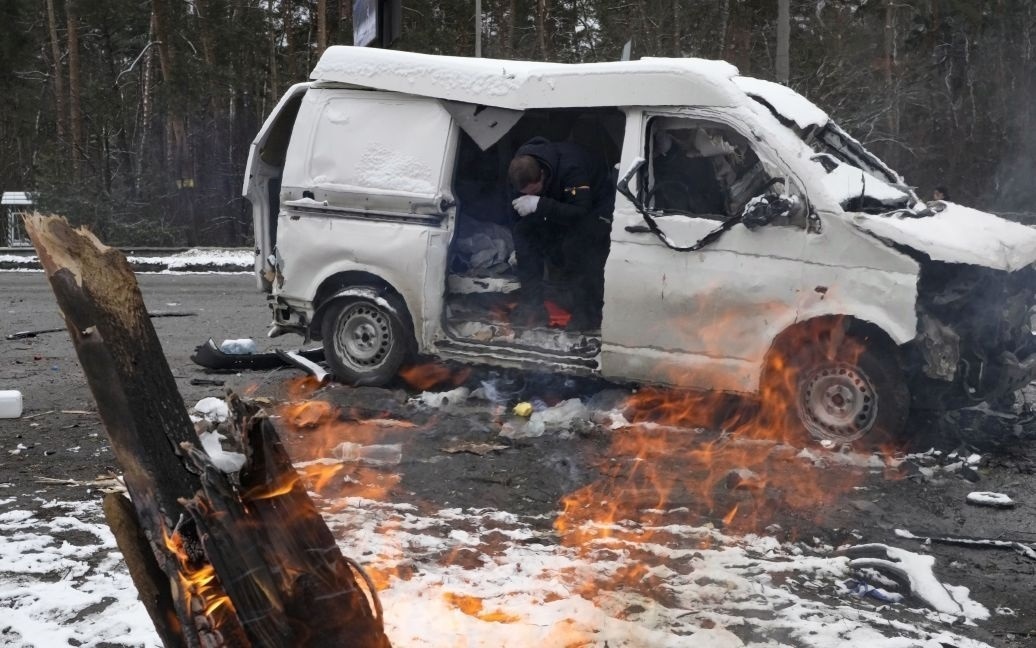
We were at a loss. I mean, we couldn’t just follow the regular route of that bus, for hostilities were going on. So we started our search through social media, having contacted volunteers from Kramatorsk and Kharkiv. Together, we managed to locate the bus at Volokhiv Yar. The machine-gunned bus stood there for four days, with the bodies of those four killed female students still inside, along with the bodies of an unknown pregnant woman, an unknown man, and the driver. All seven of them were killed. We discovered that the rest of the passengers were wounded, and someone manage to evacuate them and take them to a hospital in Chuhuiv. Those people seemingly decided to just abandon the “Cargo 200” [“Cargo 200” is the military identifier for transportation of dead bodies from the battlefield — translator’s note].
So we had to negotiate for the bodies to be removed from the site. The scene was horrific, the parents had to personally come and claim the bodies of their children, who remained in their seats inside that bus. I had to talk to each of their mothers.
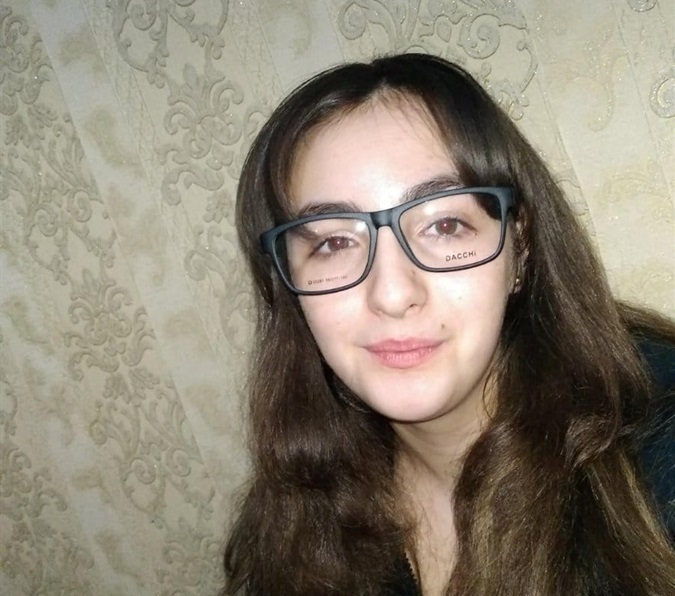 Yekaterina Yelevterova, one of the students killed in that machine-gunned bus heading from Kharkiv to Toretsk
Yekaterina Yelevterova, one of the students killed in that machine-gunned bus heading from Kharkiv to Toretsk
All of them were from the same city. And I just couldn’t say something like, “Well, I’ve found them, you do the rest.” Those conversations, those tears are unbearable. While the search is still on, there’s always hope that you can save those people. And then you’ve found them, those young women, those girls, and all of them “cargo 200”. This is how this war started for me.
That search operation was the hardest one and will haunt me forever. I’d like to say thank you to all the volunteers from other cities who were understanding and helped us.
And then there was Volnovakha, and later, Mariupol. We managed to find more missing persons from Volnovakha than from Mariupol. Our groups on Viber and Facebook were flooded with BOLOs [“Be On the LookOut”, a search bulletin, — translator’s note] from people searching for their close ones. Of course, we could not physically visit the city, we were not allowed to go there. What we could do is make lists of missing persons and compare them with the lists from our [controlled by the Ukrainian government, — translator’s note] cities where people rescued from Volnovakha were arriving — and that’s what we were doing.
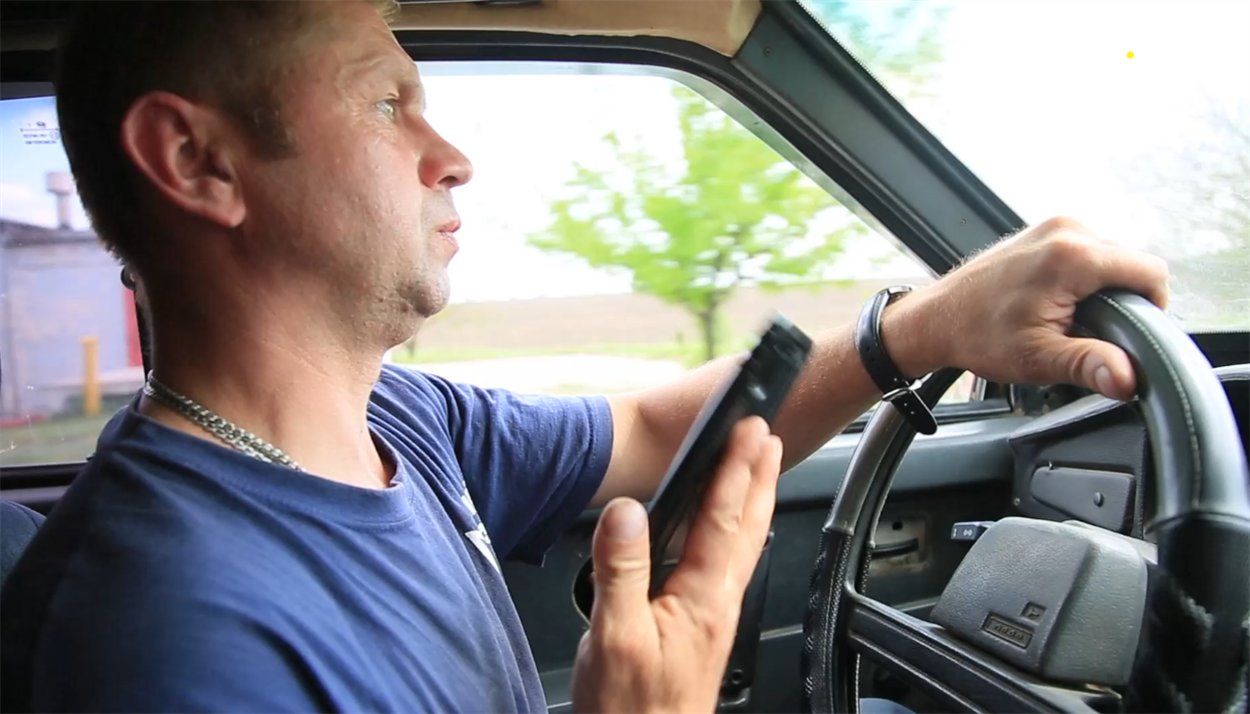
Later, when the search for the Mariupol residents was launched, women from our team were interviewing those who managed to escape the blockade. That’s how we collected data on basements and bomb shelters where people find refuge, the data on who was hiding where, and, most importantly on who was still alive.
As of February 23, there were 370 people in our group. In just two weeks, our membership increased by 2,000, and those new members were the people who submitted BOLOs for their dear ones. Just recently, we managed to find two more local residents, one was in the suburbs of Izium, and the other one was here, on Donetsk Oblast. In the war zone.
The so-called “gray areas” are the most difficult to search in. Today, it’s really difficult to find out that the person who went somewhere didn’t make it to their destination. And most of the time, it’s almost a miracle when you manage to back up your speculation that the person has met their doom in their vehicle somewhere in the gray zone. Now I know for sure that a local man is reported missing and that his wife is pregnant. And by now, I am almost certain (I always say “almost”, there should always remain a chance for life) that he was killed. But we are unable to get to his vehicle where a decapitated male corpse was seen. That man has been listed as missing for over a month. The number of missing persons is just terrifying.
For more evidence of the war in the eastern regions of Ukraine, watch our YouTube Channel Svoi.
Evacuated my bedridden daughter and my family abroad, so now I’m on my own, free to work and help others.
I’m a father to three children. When they first started evacuating [the civil population, — translator’s note] from the region, we decided that the children would move to the fire station and be with me. However, one of my children, my daughter Valeria, is bedridden due to an injury she got in early 2022. How could I risk her life like that?
My daughter was transported in a lying position, while my younger children were sitting beside her. At the border, I got my daughter out of the vehicle and carried her in my arms to the neighboring country, where volunteers put her on a stretcher and helped in transporting her, also in specialized transport, to Germany. All of them are learning the language now, and my son, Vania, was enrolled in a German school.
My wife has always been my huge supporter, we always keep in touch. Now I don’t have to worry about their safety, it’s just that my home feels unbearably lonesome now. We used to always be together, always in touch, they always knew what I was doing… And now I am alone, and all I do is work and help others. My hands are untied, so I am free to help people as I live, unafraid to go on business trips. My folks are sometimes unaware of my location, but we always keep in touch.
When performing the search, you have to go into the fields and fly your drone — an impossible task now.
During that year and a half that our group Poshuk Donbas is in operation, we’ve had several dozen volunteers from various cities. One of them was Tetiana from Mariupol. In early March, we lost contact with her, as with everybody else [in that city, — translator’s note]. That 24-year-old young woman spent the two months that followed in a basement, end even in those circumstances she stayed true to her principles: she melted snow and shared the water with others, she shared her food and her warmth; she was cheering everyone up.
I’ve never met her in person, despite having worked with her within the Search for Missing Persons fellowship for a year and a half. She helped many living people to return home safely. During those two months in Mariupol, her apartment, her car, and her past lives burned to ashes. They managed to escape on foot, with her husband being wounded somewhere along the way. Today, Tetiana and her mother are in the Czech Republic, and again she continues helping us.
As of today, we are searching for a woman who departed from Kurakhove, arrived in Pokrovsk, but failed to board the evacuation train. We’re looking for her in every hospital and every church, we’re walking around the city with a photo of her — but we are unable to carry out a search on site. You see, you have to go to some abandoned places, into fields, and fly your drone — which is currently an impossible thing to do.
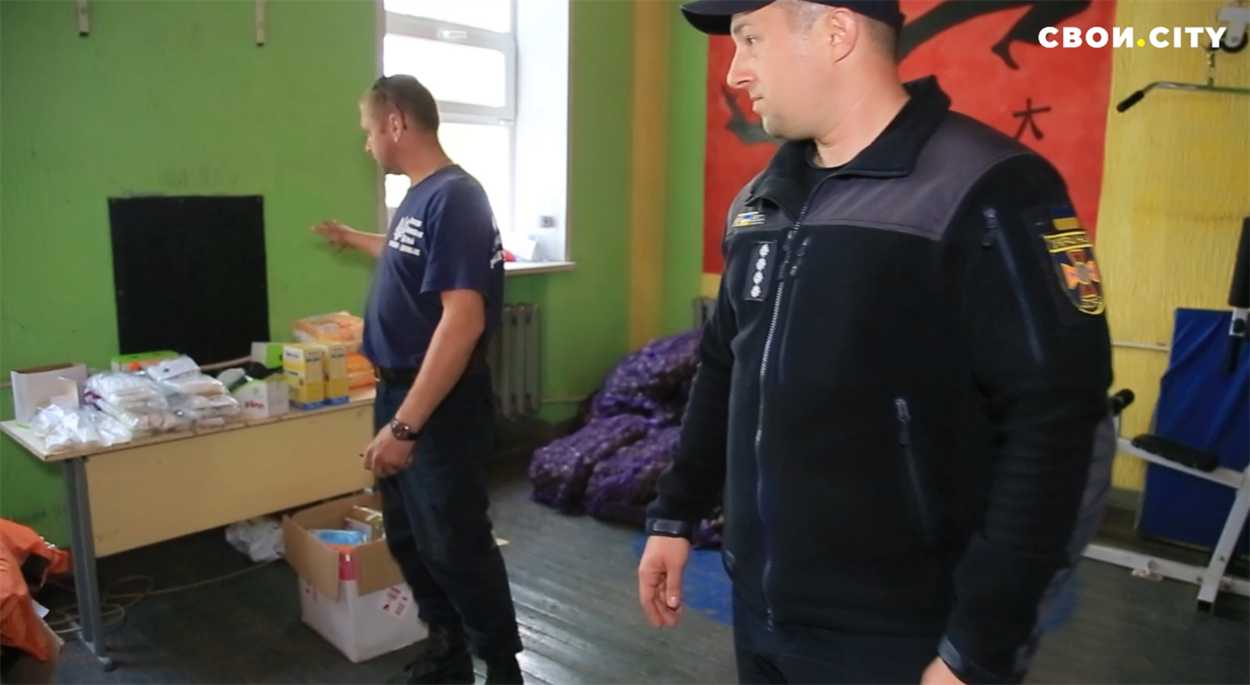
Today all the search scouts are interlinked. It used to be that way earlier, yet after February 24 our bond grew even stronger, it’s now, like, family-ties-strong, even if the only type of contact we ever had with one another was over the phone.
People searching for their close ones, of course, should contact the police, but they should also contact the volunteers, from day one. As of today, the volunteers are one of the most powerful movements in Ukraine. Besides, the volunteers know the situation well enough to offer some good advice on what one should do. Those who are engaged in searching for missing persons will definitely help.
As of today, it’s really difficult to perform on-site searches. But I can’t just write “Attention! This person is missing” on social media, I have to do something! So I do whatever I can, as well as the rest of the folks from Poshuk Donbas. We continue helping everyone we can. Somewhere along the way, we tapped into delivering humanitarian to the hotspots. For instance, we delivered warm blankets to the people living in basements in Avdiivka, along with medications, wound dressing supplies, and baby formula.
Whenever I go to pick up humanitarian aid, I do my best to fulfill people’s personal orders. We are currently in the process of negotiating the supplies of medications for Myrnohrad Hospital Urology Department through my network of volunteers, trying to locate the necessary supplies. We already passed that application to Slovakia, and are waiting for their reply. Let me tell you how I got to know volunteers from Slovakia. I was in Uzhhorod, collecting another batch of humanitarian aid, and there was one suitcase with a specific delivery address in Severodonetsk. The sender left their phone number, so I dialed that number. On the other end of the line, I found a girl living in Slovakia who helps her fellow countrymen. So now she helps us, too.
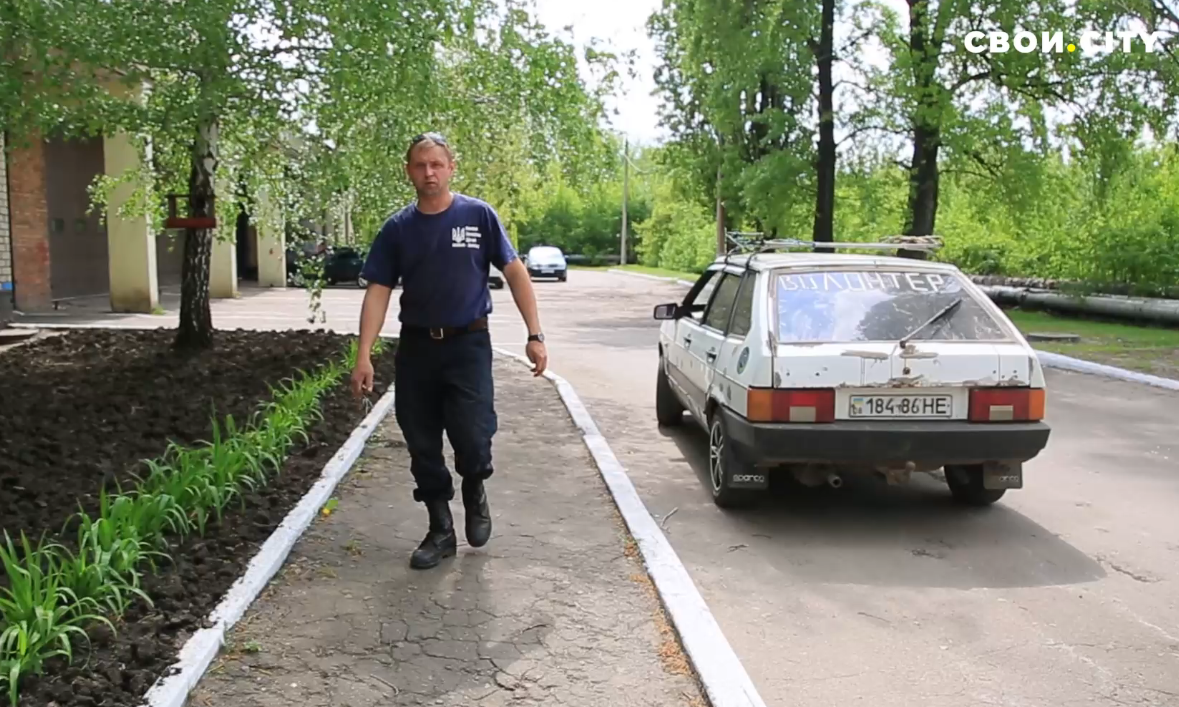
Naturally, I never leave out my fire department. I know exactly what can make our work easier, for other guys like me, and what can help us save the injured. I was on the lookout for non-rigid stretchers; I’ve found them already and brought them to the station, and now the firefighter’s vehicle is equipped with that stretcher. I got some Swiss splints for treating the fractured bones, so now Myrnohrad emergence responders are equipped with those modern-type splints, along with plenty of other first-aid stuff.
Now I work 24/7, so to say, no time to rest. But the truth is, I feel that I could be doing more. I need to perfect the logistics and make more connections, to make our efforts more efficient. Everybody willing to volunteer is welcome, the doors are open to all, just keep in mind the honor of this mission.
My volunteering schedule depends on my days off. Therefore, orders are prepared for me on the days when I’m working, and I go to pick them up on my first day off from work. Nobody ever refused to try and adhere to my schedule.
Overall, these first 80 days of full-scale war changed me a lot. I’ve toughened up against people who are doing absolutely nothing. Every one of us can help, and save somebody. Being an outside observer is not an option, not an option at all.

